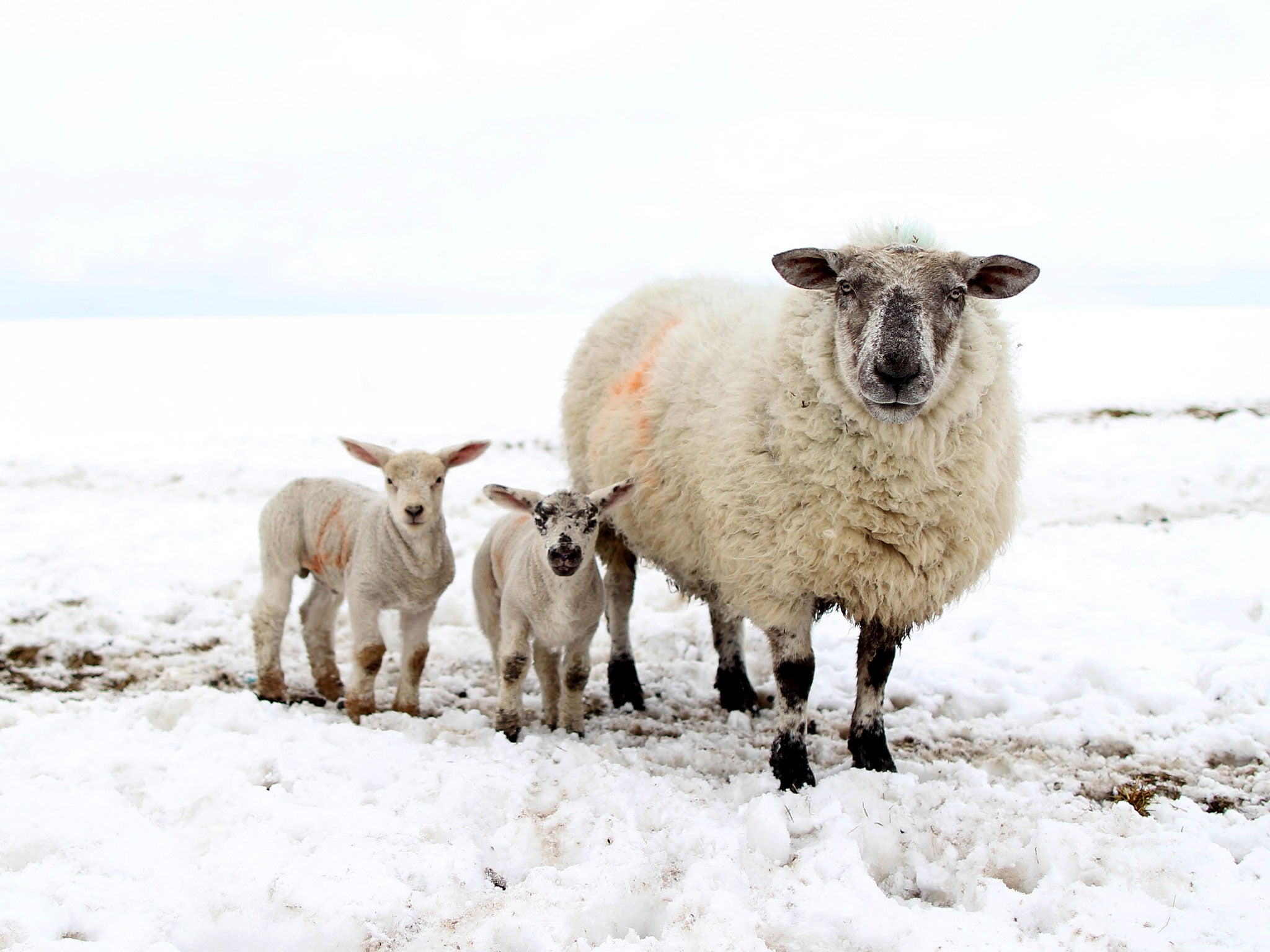Lamb births at 30-year low after drought, heavy rain and snow blizzards

The number of lambs born in the United Kingdom has fallen to a 30-year low after a year of bad weather, culminating in blizzards.
Rain and snow led to undernourished ewes – which are less likely to have multiple births – and extreme weather conditions and disease killed tens of thousands of sheep.
About 15.8 million lambs are expected to be born this year, a drop of nearly 1.4 million on 2012; and 2.7 million fewer than a decade ago. It is thought that the British lamb crop has not been so small since the early 1980s.
Sheep farmers’ problems began early last year when much of the country was suffering from drought and feed supplies started running low.
It was rapidly followed by heavy and prolonged rain which affected the quality of grass, in turn making it difficult for farmers to fatten up sheep and lambs. They were also forced to buy expensive feed for their flocks because they were not able to make their own hay or silage from grass.
Ewes had less chance of conceiving – and those that did were more likely to have single rather than multiple births. The grim situation was exacerbated by a major outbreak of liver fluke, caused by flatworms, which thrive in wet weather.
Sheep farmers also faced some of the heaviest snow in living memory, causing catastrophic losses.
The lamb shortfall has been forecast by Eblex, which represents sheep and cattle farmers. It warns that a repeat of the weather of the past 12 months would be disastrous for farmers.
Joseph Keating, a livestock adviser for the National Farmers’ Union, said: “This isn’t a crisis yet. What happens this year is going to be important.”
Subscribe to Independent Premium to bookmark this article
Want to bookmark your favourite articles and stories to read or reference later? Start your Independent Premium subscription today.

Join our commenting forum
Join thought-provoking conversations, follow other Independent readers and see their replies